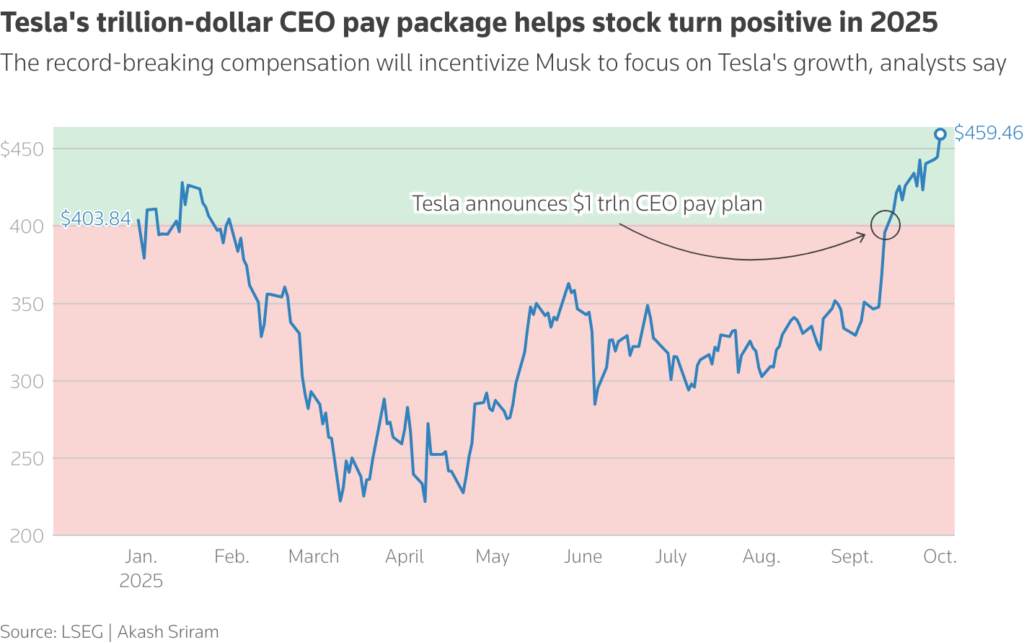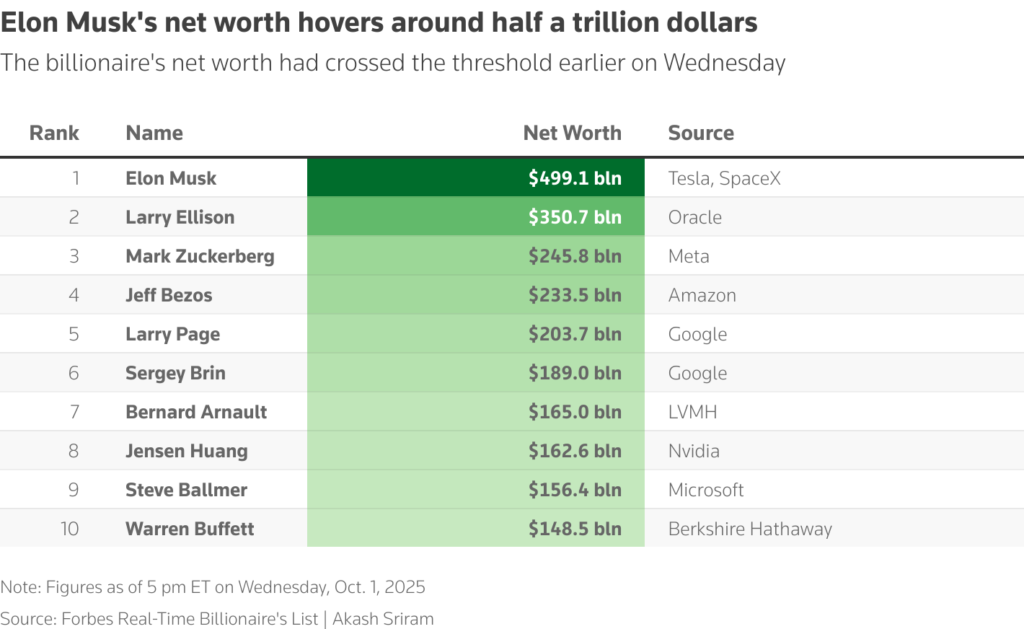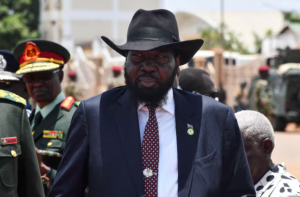Elon Musk has officially become the first individual in history to witness his net worth break the half-trillion-dollar barrier, a milestone fueled by Tesla’s stock rebound and astronomical valuations of his other space exploration and artificial intelligence enterprises.

Musk’s fortune briefly hit $500 billion on Wednesday before closing the day at about $499.1 billion, according to Forbes’ Billionaires Index. The landmark came less than a year after he broke the $400 billion barrier, further cementing his title as the world’s richest person.
Tesla’s Contribution to Musk’s Wealth

Musk’s fortune is directly tied to his 12% stake in Tesla, the globe’s most expensive car maker. Tesla shares are up nearly 14% year to date so far after a rollercoaster period in the first half of 2025.
Musk himself purchased roughly $1 billion in Tesla stock last month, a gesture widely interpreted as an expression of confidence in the company’s long-term strategy. The automaker is forcefully transitioning away from its traditional role as an electric car manufacturer into a broader AI and robotics titan, making humanoid robots, autonomous cars, and advanced manufacturing machines.
Tesla’s board also has recently weighed a record-breaking $1 trillion pay package for Musk. If ratified, it will be the largest executive compensation package in history, aimed at ensuring Musk focuses on Tesla while he holds management roles at multiple other entities. Since the move was made public on September 5, Tesla’s stock has jumped more than 35%, making Musk billions richer.
Beyond Cars: Space, Satellites, and AI
Musk’s wealth is not solely invested in Tesla. His other enterprises have also taken off in worth:
SpaceX, his rocket and space exploration firm, is now valued at around $400 billion. The company dominates the commercial launch industry, repeatedly supplying launch services to NASA, lifting satellites into orbit, and running Starlink, the world’s largest satellite internet network. Starlink alone has millions of subscribers worldwide and is now a necessity for remote communication, disaster relief, and even the military.
xAI, Musk’s artificial intelligence startup, has seen its valuation swell to more than $75 billion as of mid-2025, with reports that new funding could push it toward $200 billion. The company is developing “Colossus”, a massive supercomputer designed to train next-generation AI models, while its Grok chatbot competes directly with platforms like OpenAI’s ChatGPT and Google’s Gemini.
Musk also continues to dominate industries such as clean energy, solar technology, and neural computing through his various endeavors, further dominating industries that dictate the world economy.
A Historic Financial Milestone
Financial analysts credit Musk’s rise to a net worth of $500 billion as a reflection of the record scale of modern technology companies and Musk’s ability to amplify his leverage across diversified industries. The proposed $1 trillion Tesla compensation plan is certain to further encourage him to double down on Tesla’s growth narrative while keeping stringent control on his other ventures.
Following Musk on the Forbes list is Oracle tycoon Larry Ellison, with an estimated net worth of $350.7 billion, well behind Musk’s record-breaking margin.

While Musk maintains a lot of plates spinning across Tesla, SpaceX, and xAI, the question lingers: how much higher will his wealth go as the areas he’s a pioneer in—electric vehicles, space travel, and artificial intelligence—continue to go global?




